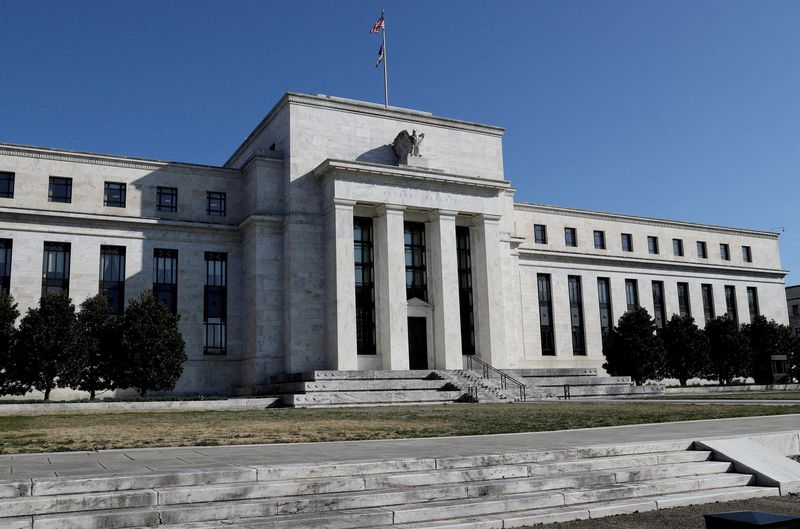By Michelle Conlin
NEW YORK (Reuters) - Big U.S. banks survived a hypothetical 40% drop in commercial real estate values as a part of the U.S. Federal Reserve's annual health test, easing fears about the banking sector as landlords struggle in a higher-for-longer interest rate world.
As risks mount in the CRE space, investors were looking to the Fed's "stress tests" to assess how exposed America's lenders are at a time when pandemic-era work habits continue to empty office towers, sending vacancy rates past historic peaks to a record 20%.
“In a lot of respects, there should be a sense of comfort that banks can weather a very nasty storm,” said Chris Marinac, head of research at Janney Montgomery Scott. "Though this doesn’t mean the Fed thinks commercial real estate is out of the woods. It’s still early innings in this credit cycle.”
The Fed's emergency drill tests banks' balance sheets against an imagined severe economic downturn that also includes a 36% decline in U.S. home prices, a 55% drop in equity prices and an unemployment rate of 10%.
The results, released on Wednesday by the Fed, examine whether banks would be able to continue lending to households and businesses in the event of a severe global recession. They also indicate the amount of capital banks need to be considered healthy - and how much they can return to shareholders through dividends and buybacks.
The 31 large banks tested showed they have sufficient capital to absorb nearly $685 billion in losses.
The Fed's disaster test comes more than a year after the collapse of mid-size lenders Silicon Valley Bank, Signature Bank (OTC:SBNY) and First Republic. Those failures prompted criticism that the Fed had failed to gauge banks' vulnerabilities against rising interest rates; instead, the Fed imagined interest rates would fall amid a severe recession.
Commercial office space is being closely watched as $929 billion of the $4.7 trillion of outstanding commercial mortgages held by lenders and investors will come due in 2024, according to the Mortgage Bankers Association. This looming maturity wall comes against a backdrop of declining property values and lower rent rolls.
Analysts predict a painful reckoning for CRE, with banks still retaining "considerable concentration risks," according to Moody's (NYSE:MCO) Ratings.

Of the banks tested, Goldman Sachs had the highest projected loan loss for commercial real estate, at 15.9%. RBC USA, Capital One and Northern Trust (NASDAQ:NTRS) followed, with projections at 15.8%, 14.6% and 13%, respectively.
One criticism of the Fed's stress test by analysts was that it did not include the regional banks that hold the majority of CRE loans. Regional lenders are also less regulated than their larger peers.